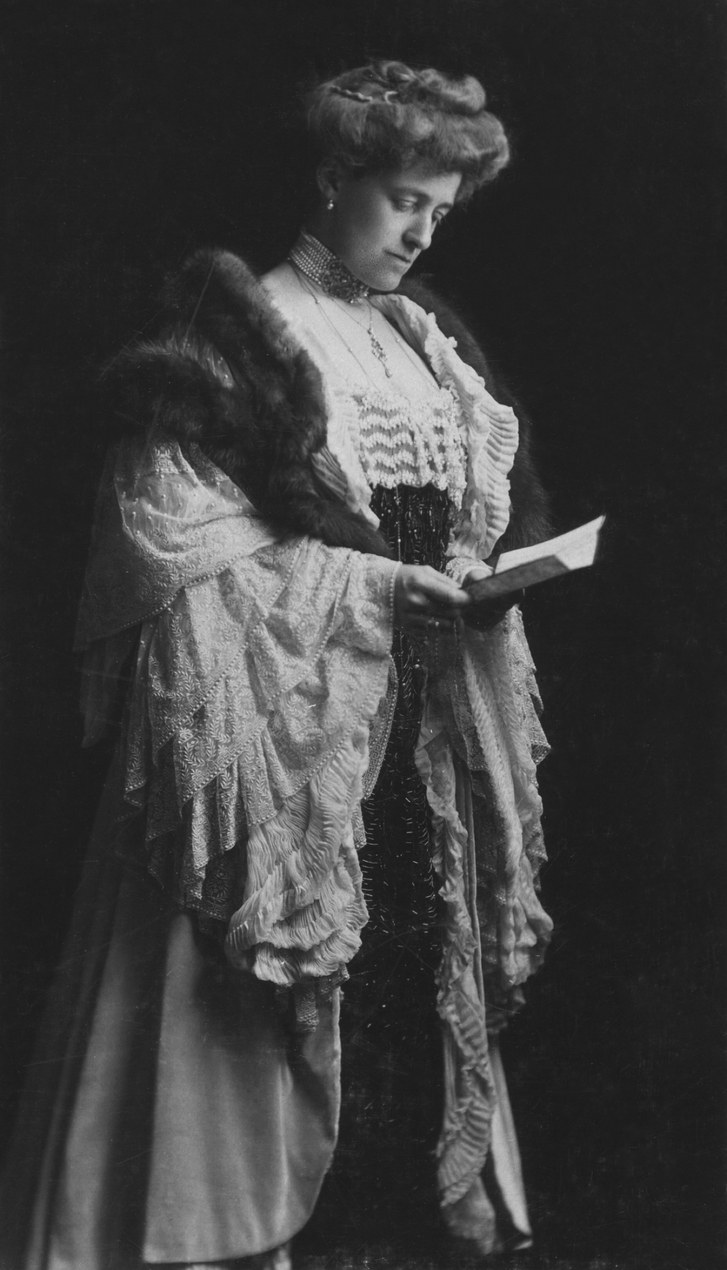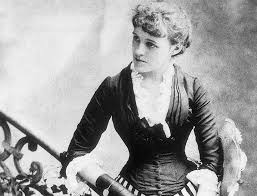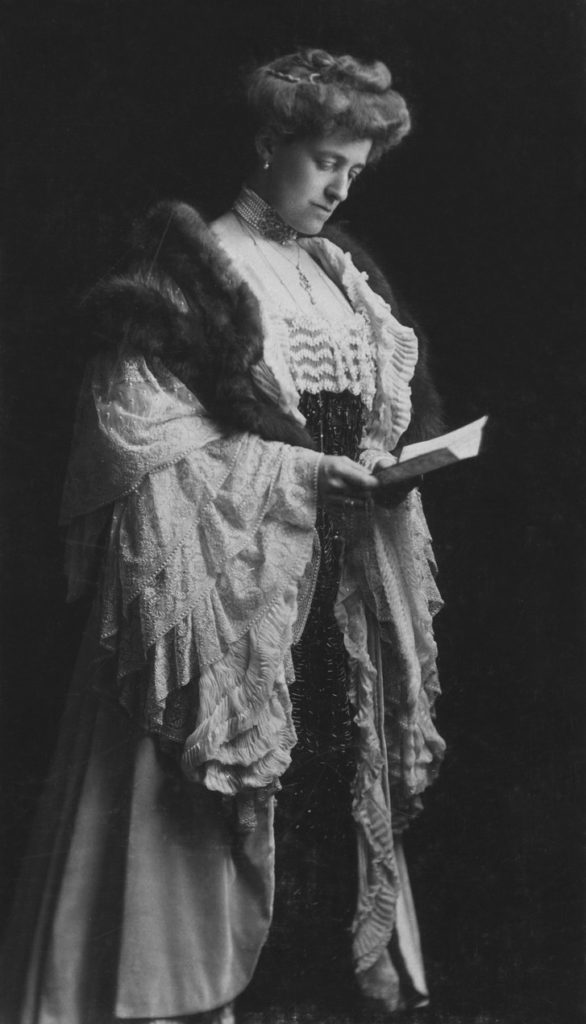Since it is March and Women’s History Month will soon be in full swing, and also because I rewrote this throwback post in Portuguese to practice writing in my third language (!!), I wanted to republish it and give Edith Wharton more of the recognition that she deserves. Enjoy!
~~
I recently (i.e. a month ago) read my first noel by Edith Wharton, “The House of Mirth,” and now I wonder why it took me so long to read anything by her or learn about her. In researching for this blog post, I realize that I quite literally knew nothing, and I regret it. Wharton was an amazing woman who was years and years ahead of her time. She was a feminist before the term existed.
Born in New York City, Wharton grew up in Europe and was fluent in four languages by the age of 10. She loved writing and wrote poems and short stories throughout her childhood. She also loved reading, and was constantly filching books from her father’s library.
As a young woman, Wharton rejected the fashionable clothing of the time, deeming it superficial, as it was meant to attract marriageable men and she was not interested in that. At 15 she published her first work, a translation of a poem from the German. However, it was not published under her name because it was considered proper for the times. By the age of 16, she had been published in the Atlantic Monthly, had privately published poems and short stories, and had written a novella. Despite all of this, no one in her world encouraged her to pursue writing. But we all know that didn’t stop her.
Wharton was a unique woman for her time. Along with her writing, which was considered scandalous, she was socially polemic. She broke off an engagement in her late teens, and much later had an affair, which led to her divorce. These things were all considered unacceptable in her day and age, and after her divorce she went to live in France.
I could keep going on and on about all the ways in which Wharton defied social convention or supported women in gaining equal footing in the world, such as opening a workroom for women in France during World War I, or becoming the first woman to win the Pulitzer Prize in 1921, but her most important feminist act was her writing itself.
Although some (notably Kate Bolick in her book “Spinster”), have deemed her novels anti-feminist for their less-than-satisfactory endings (i.e. the main character does not live happily ever after), I firmly reject this notion. Let’s take, for example, “The House of Mirth,” which follows a rich-but-now-poor socialite trying to make it in the upper class, although she has no means of doing so. She eventually commits suicide (sorry, spoiler) but through her novel, Wharton exposes not only the double standard in 20th century society, but also the social hypocrisy. Women could not survive without men, and had to bend to fit society’s conventions in order to attain a husband, in order to survive. The main character refuses to do this, and society punishes her. Wharton openly criticized the society in which she was born and raised. That’s a badass piece of feminist literature if I ever read one.
I have all but fallen in love with Wharton and her writing, and I highly recommend any of her works–not just one of her 15 novels, but also her autobiography (”A Backward Glance”), her poetry, short stories, or any of her books on a number of other topics, including travel, design, and cultural criticism.
Edith Wharton foi uma escritora americana que nasceu na cidade de New York no ano de 1862. Uma feminista antes de que existisse o feminismo, Wharton era uma mulher do futuro. Educada na Europa, Wharton falou quatro línguas quando tinha 10 anos, e adorava escrever—passou a maior parte da infância escrevendo poemas e relatos curtos. Também gostava de ler, e sempre roubava livros da biblioteca do seu pai.
Quando era jovem, rejeitou muitas das normas que seguiam as pessoas da sua idade, como a roupa que estava na moda, opinando que o propósito era atrair os homens solteiros, e que não lhe interessava casar-se. Com 15 anos, publicou a sua primeira obra, uma tradução dum poema do alemão, mas não com o seu nome porque não se considerava apropriado nessa época. De qualquer forma, com 16 anos tinha sido publicado no jornal Atlantic Monthly com frequência, e também publicou alguns poemas e contos curtos com título privado e escreveu o seu primeiro romance. A pesar de tudo isso, nenhuma pessoa na sua vida lhe animou tornar-se em escritora, só em casar-se.
Wharton era mulher única, especialmente na sua época. A sua escrita era considerada muito escandalosa pelos temas sociais que expôs: por exemplo, na sua novela “The House of Mirth,” uma jovem socialite que era rica perde o seu dinheiro e ainda tenta aguentar na classe alta. Wharton mostra que sem a ajuda ou o poder dum homem, é quase impossível sobreviver na sociedade do século 20. As mulheres precisavam dos homens, tanto se gostavam ou se não estavam de acordo, e tinham que mudar para convirem/encaixarem na sociedade e alcançar um marido. Se não mudassem, a sociedade puniria/punia-lhes, e Wharton não tinha dúvida em infligir aos seus personagens essas punições—no final de “The House of Mirth”, a protagonista comete suicídio.
Além da sua escrita, a própia Wharton era uma figura polêmica. Sempre tomou as decisões que foram corretas para ela, sem pensar em que diria a sociedade. Na adolescência rompeu um noivado, mas tarde e depois de casar-se teve um caso, e eventualmente divorciou-se. Tudo isso a levou a mudar-se para França, onde seguia trabalhando pelas mulheres, abrindo uma sala de trabalho durante a Primeira Guerra Mundial, enquanto a maioria das outras pessoas influentes fugiam.
No ano de 1921 tornou-se na primeira mulher que ganhou o Premio Pulitzer, e em 1996 foi admitida no National Women’s Hall of Fame, com outras mulheres como Maya Angelou, Clara Barton, Susan B. Anthony, Emma Lazarus, Eudora Welty, e Zora Neale Hurston. Wharton morreu no ano de 1937 em França, e hoje em dia é quase desconhecida, e não recebe o mérito nem o reconhecimento que merece.


